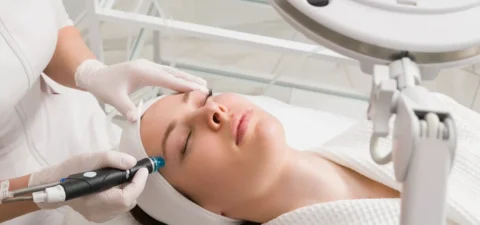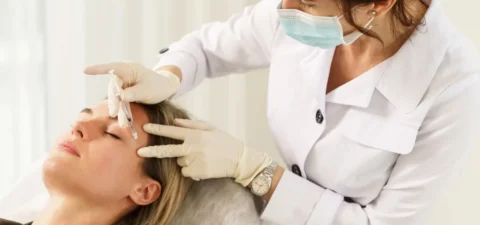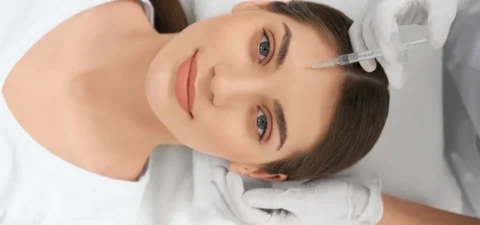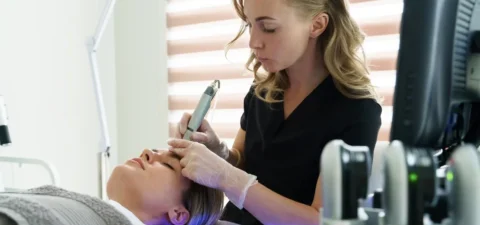For information only. Not meant as advice in any form. Please consult your medical professional or lawyer.
The demand for medical estheticians is especially high in Florida. It is no coincidence in the sunshine state since the U.S. Bureau of Labor Statistics also records it as the state with the second-highest employment of skin care specialists – a profession that includes medical estheticians and facial specialists and is expected to grow in job openings by 29% in the nation from 2020-2030. Given Florida’s humid and subtropical climate, it is no surprise that the sunshine state also has a high demand for medical estheticians.
So how can you become a medical esthetician in Florida? An aspiring medical esthetician is expected to undergo formal education and training in state-accredited medical esthetician schools, pass national and state licensing exams, and pursue their medical aesthetics careers with more advanced courses.
How to Become a Medical Esthetician in Florida
Medical estheticians (also called medical aestheticians or paramedical estheticians) are cosmetology professionals trained not only in advanced makeup and skin care treatments but also in providing skin recovery treatments in the medical setting, especially for patients that have recently undergone facial surgery or went through a skin condition. They work closely with dermatologists, facial specialists, and physicians to assist patients in laser hair removal, skin massages, and the like.
In Florida, the U.S. Bureau of Labor Statistics reports around 4,600 employment of skin care specialists including medical estheticians. If you are looking to pursue a career in medical aesthetics, read on further to know more about the process of becoming a medical aesthetician in the sunshine state.
1. Prepare Your Requirements
Becoming a practicing medical esthetician does not require that you finish medical school. However, to be able to practice, you must be trained in an esthetician school and be able to pass the written and practical esthetician exams and gain the esthetician license.
To be able to enroll in a medical aesthetics school, you must ensure that you have the qualifications to do so. For instance, most states including Florida require that a medical aesthetic school applicant be 16 years old and above, and hold at least a high school diploma or a GED certificate.
2. Enroll in a State-Approved Medical Esthetician School
To start with your journey in becoming a medical aesthetician, you need to undergo formal training by enrolling in accredited medical esthetician schools.
What Courses Should You Expect?
Being a medical esthetician requires extensive expertise in clinical skin treatments and procedures. As a paramedical esthetician student, you are expected to undergo training in the following courses and procedures:
- Science of the skin (anatomy, physiology, ailments and diagnosis, treatments)
- Laser treatment procedures (e.g., laser hair removal)
- Permanent makeup application techniques
- Manual lymphatic drainage massage therapy
- Cosmetic Chemistry
- Salon management
- Advanced skin care procedures (e.g., hair removal, facials, microdermabrasion, and specialty masks)
Choosing a Medical Esthetician School
In starting your formal medical esthetician training, it is important to discern first the quality of education that you’ll be getting in your prospective medical aesthetician school. Here are some factors you should consider in searching for the best esthetician school for you:
- Is the school approved by the state and accredited by the National Accrediting Commission of Career Arts and Sciences (NACCAS)?
- Do they incorporate quality hands-on applications in their training?
- Do they have state-of-the-art and up-to-date facilities for your training?
- Is the school a veteran in teaching its medical aesthetics courses?
- Do they offer internships and career assistance for their students’ experience?
- Do they have experienced faculty and a high teacher-student ratio?
As one of the top states in skincare specialist employment, Florida also offers many institutions you can choose from where you’ll get your paramedical esthetician training. Below are some of the best esthetician schools in Florida:
- Aveda Institute
- Pinellas Technical College – St Petersburg
- Hollywood Institute
- Florida Technical College
- Florida Medical & Aesthetic International School
- American Beauty Schools
- Robert Fiance Beauty Schools
- Boca Beauty Academy
- Beauty and Health Institute – Tampa
Obtain Your Esthetician License
To become a full-fledged paramedical esthetician, you must be given a facial specialist license by the Florida Board of Cosmetology.
Unlike in other states, you don’t need to take licensing examinations to become a licensed esthetician in Florida. The Florida Department of Business and Professional Regulation only requires an oral and practical examination for cosmetology license applicants, but not for facial specialists and nail technicians. As per the Florida Department of Business and Professional Regulation, the general requirements for a facial specialist license application follows that applicants must:
- Be 16 years old and above and have finished a high school diploma;
- Possess a Social Security number
- Have completed a 220-hour facial specialist/esthetician program at a Florida school; 400-hour courses for a full specialist license
- Have completed at least a 4-hour HIV/AIDS course and passed the HIV/AIDS board examination
For more information regarding the esthetician license application in Florida, you can view their official application form through this link.
Renew Your License by Continuing Education
By the time you get your license, you can start practicing medical aesthetics. However, your facial specialist/paramedical esthetician license can only last for two years. In order to continue practicing as a medical esthetician, you must renew your license before October 31 every other year.
Within the renewal process, you are also required to take a 16-hour total of continuing education courses. Not only does this guarantee your renewal, but it also expands your knowledge and advances your beauty careers into more specializations, enabling you to coordinate with more physicians, learn more about management, and even build your own medical spa.
What Are Medical Estheticians Qualified to Do?
Medical estheticians are qualified to perform treatments and procedures that standard estheticians are also qualified to do. Beyond that, they are also able to perform more in-depth practices in clinical settings and to work with physicians, medical assistants, and dermatologists, unlike standard estheticians. They are, however, not recommended to perform more complex procedures such as skin surgeries; but they closely coordinate with the dermatologist and the patient when it comes to their preparations and aftercare.
As a medical esthetician, you might be qualified to:
- Perform massage therapy (e.g., manual lymphatic drainage), laser removal procedures, chemical peels, and tattoo removal
- Educate patients on proper skincare routines
- Advising patients on the preparation for and aftercare of surgical procedures done by physicians/dermatologists
- Coordinate with physicians regarding patient care
- Work in hospitals and clinics
Jumpstart Your Career in Esthetics With Face Med Store’s Online Courses
Being a medical esthetician gives you an opportunity to improve a patient’s quality of life through more in-depth knowledge of clinical procedures and skin treatments. And as time goes by, new technological advancements enable healthcare providers to yield higher quality results. As such, it is also the duty of a medical esthetician to continuously learn various techniques and new technological procedures.
Here at FACE Med Store, not only do we supply quality products for medical spas, but we also ensure that our clients are provided with knowledge of advanced techniques through our online training programs. Get in touch with us today to learn more about our online courses and esthetician products.






